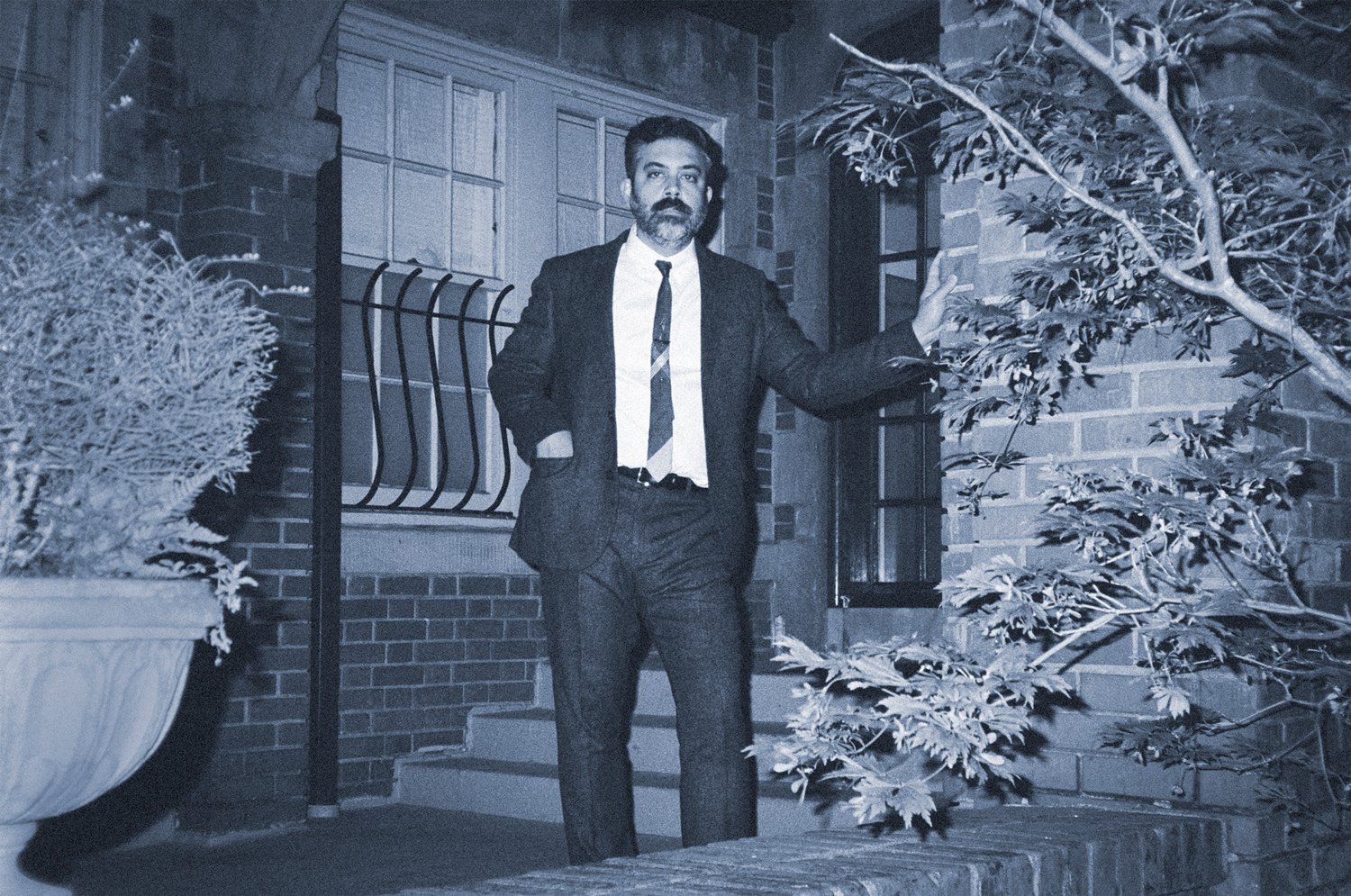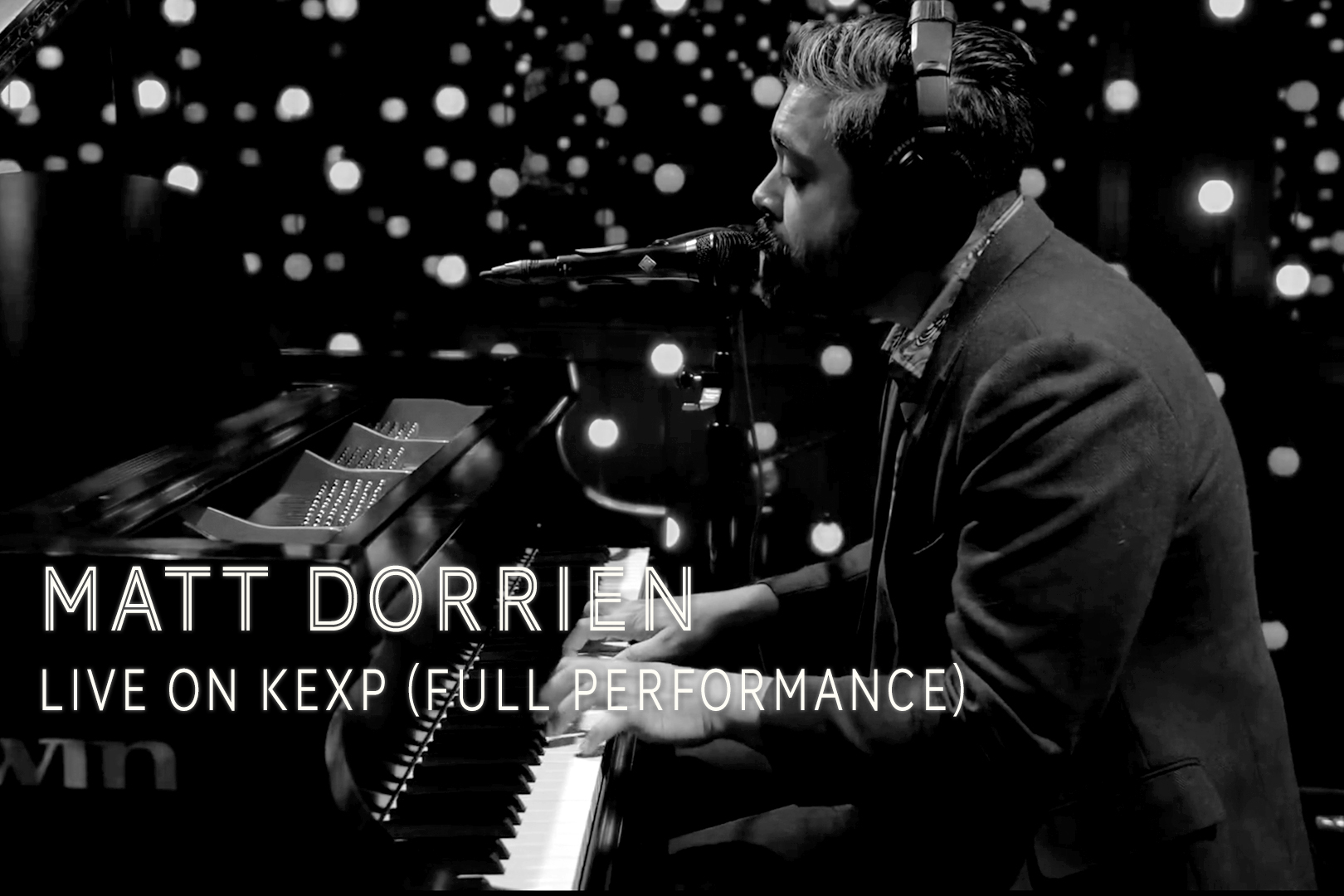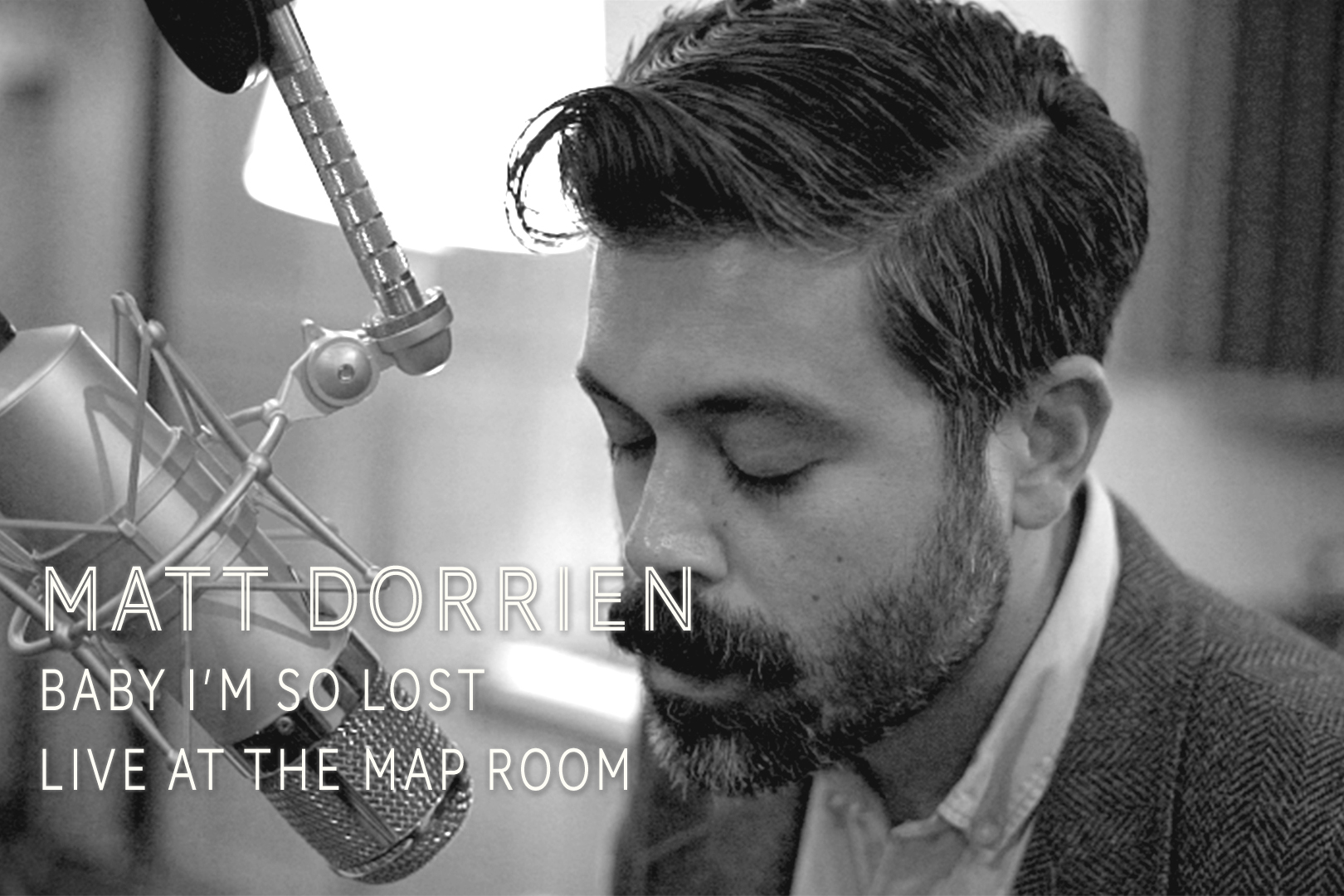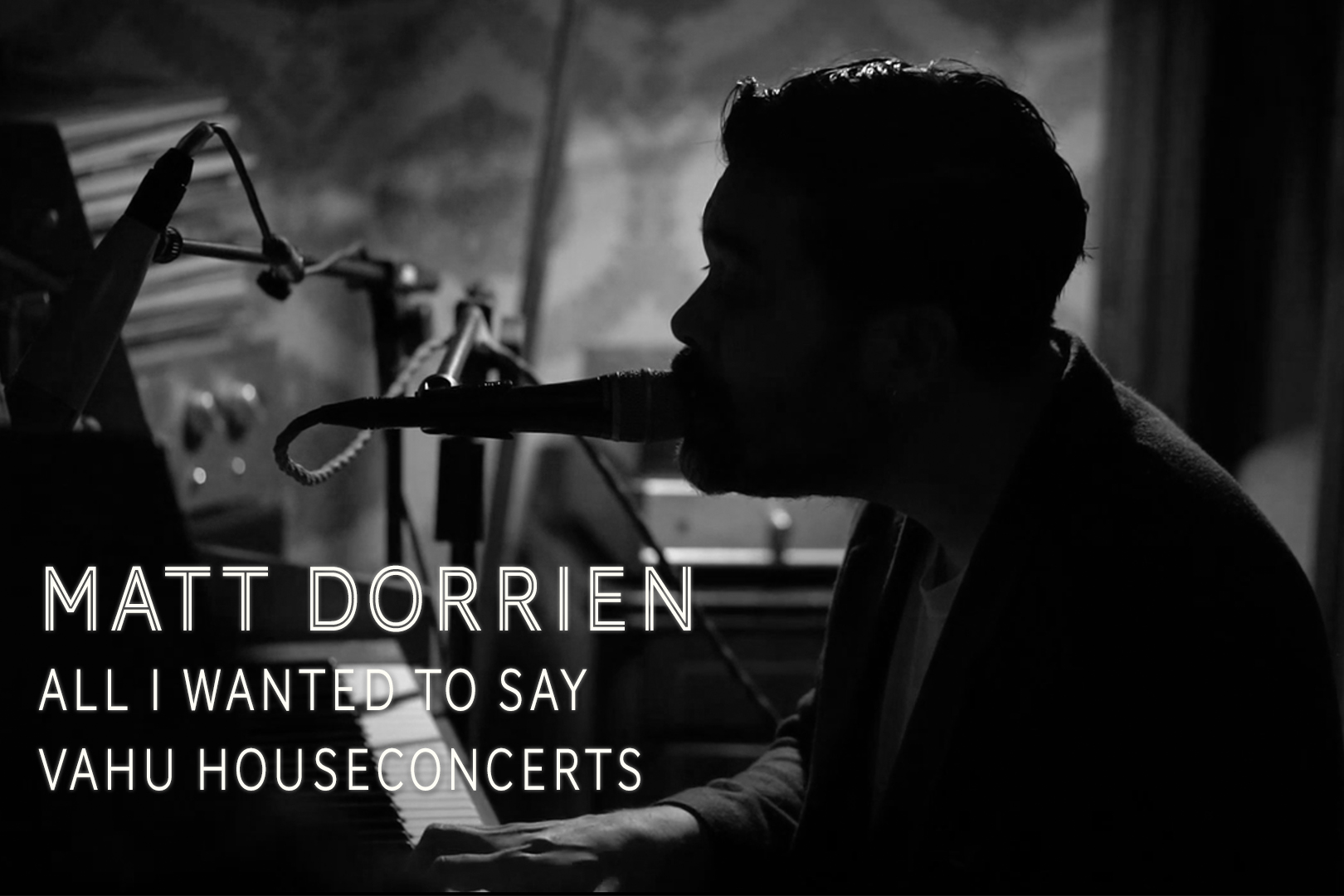MATT DORRIEN
For anyone looking to quickly learn how Matt Dorrien’s second LP differs from the first, the Portland pianist and songwriter has provided some helpful hints. The first is right there in the title. His debut was In the Key of Grey, a reflection of its somber mood and post-breakup theme. This one’s called Blue Pastoral—big, expansive, rich, colorful, covering everything from fizzy samba-surf exotica to twinkling cocktail jazz. Dorrien opened the last album singing, “Baby, I’m so lost”; three songs into this one, over caramel-colored strings, he sings, “Baby, I’m so happy our paths crossed.”
“I think that’s the overarching theme of this record,” Dorrien says. “I went on tour with Courtney Marie Andrews last year, and I had a lot of fun with her and her band, but performing alone at the piano every night—especially as a relative unknown—has a way of making you keenly aware of your insignificance. I began to realize that I have someone at home who I love, and who loves me, and I’m okay with being anonymous, as long as I’m someone to her.”
It was a lesson that took a long time to learn. Growing up on Long Island, the son of a first-generation immigrant mother from the Philippines, hearing stories of brave victories—narratives of triumph and success over unbelievable odds—were an integral part of his childhood. “My mother first arrived in Los Angeles in the 1960s when she was in her early teens. Her father, my grandfather, was in the Philippine Air Force and fought the Japanese during WWII, barely escaping The Bataan Death March. When we were children, he would tell us these harrowing stories about his time in battle, and his emotional recounting of the American commander General Douglas MacArthur’s promise to return to the Islands stuck with me. Without getting too deep into the history, the Filipino people have been colonized many times—last but not least by the U.S.—and despite this problematic relationship and the internalized racism it has contributed to, Filipino people love Americans and American culture.”
That love of American culture was everywhere when Dorrien was growing up. His grandmother on his mother’s side would watch The Sound of Music with Dorrien and his sisters any time she babysat. His mother loved The Supremes, Dionne Warwick, and the Carpenters, and his father—himself a descendant of Italian, French, and German immigrants—loved Frank Sinatra, Nat King Cole, and the music of The Great American Songbook. “This amalgamation of the culture of oppressed peoples—the African American contribution of jazz and the Jewish American contributions to popular song—produced something so beautiful and uniquely American. There’s something about those lush 7th, 9th, and diminished chords, paired with clever turns of phrase, that was the standard during The Golden Age of American Song. I also love the melancholy nature of the music. No matter how happy the song, there always seems to be this undercurrent of sadness that perhaps is both a result of the oppression of the music’s creators, but also maybe the volatility of the times.”
That confidence and newfound perspective is present all over Blue Pastoral in songs that boast the stacked-harmony glory of XO-era Elliott Smith, the wry humor of vintage Nilsson, and the warm melodies and expansive production style of the late Richard Swift. (“I originally intended to score every song with these big orchestral arrangements,” Dorrien laughs, “then I realized how much that would cost.”) Holding it all together is Dorrien’s innate knack for tender, immediate melodies and his restless exploration of a host of genres. “Baby, Will You Come Back Home?” is a nod to Jorge Ben’s 1974 record A Tabua De Esmeralda. Dorrien explains, “Drummer John Niekrasz added percussive elements to mimic traditional Brazilian percussion, we layered vocal harmonies instead of strings, and co-producer Ryan Oxford, who plays with Y La Bamba, added some Tropicalia-style guitar.” On “Friendly Face”, Dorrien goes even further back, crafting a homesick piano ballad in the style of Stephen Foster; and lush album centerpiece “United States of Nothing”, with its rich, countermelodic string parts, summons the ghosts of Aaron Copland and George Gershwin. “Lyrically, ‘United States of Nothing’ encapsulates all of the themes of the album,” Dorrien says. “I tried to capture the bleakness of the rural American landscape during winter, and the loneliness that comes with touring as a relatively unknown songwriter. But at the heart of the song is my willingness to concede defeat as long as I still have a true love.”
All of that comes through loud and clear on “That Gets Me Through”, one of the most candidly autobiographical songs Dorrien has ever written, and a song that serves as a summary statement for the entire record. Over a heartbreaking piano line, he sings: “I gave it my best shot / I’m okay with being no one / If I’m someone to you / These days, that gets me through.” “That song started as a simple chord progression,” Dorrien says. “At the risk of sounding cliché, the lyrics and melody seemed to effortlessly spill out. I’m especially proud of the string arrangements on that song. I’m obsessed with orchestration that harkens back to songs recorded during and after the Golden Age of American Song—especially Christmas albums of the ’50s & ’60s. I also absolutely love Randy Newman’s arrangements, particularly on Sail Away. I really tried to channel those influences when writing the string arrangements for this song. And lyrically, I start the song out griping, then suddenly shift tones. Instead of it being another song where I’m shaking my fist at the sky, I come to grips with who I am, my limitations, and what’s actually important in my life.”
It’s a theme that crops up throughout Blue Pastoral: On the bright ’60s pop of “Teddy Wilson”, with its cascade of backing harmonies, Dorrien sings, “As long as I have you by my side, there’s romance.” On “Dance”, where a shuffling beat and skipping piano line recall Dave Brubeck, Dorrien considers the case of a couple who didn’t value the love they had. And the softly swinging “Twenty Years”, sewn up by silvery slide guitar, moves gracefully from exasperation to acceptance—finding room for a Bach-influenced piano interlude along the way. Blue Pastoral is a widescreen record—70mm songs bursting with color and detail, all powered by a big, open heart.
“I’m learning that life is about compromise,” Dorrien says. “In a way, I had to learn to give something up—whether it was my old ‘wild’ single life or my pursuit of fickle success—in order to find true fulfillment. Maybe these songs can provide comfort to anyone feeling disillusioned as they pursue their dream, too.”
By J. Edward Keyes
CONTACT
LABEL, LICENSING: Vincent Bancheri, Eric Loeffler
MANAGEMENT: Mario Nascimento, Dave Grazynski
PUBLICITY: Maddie Corbin
RADIO: Rupam Sofsky


























